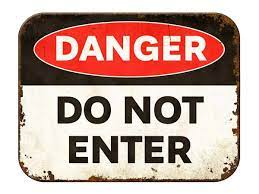Rather than boring you with a long drawn out prologue, I’ll just get right into it.
"Talent enables you to play great. Genius enables you to arrive at greatness."
Let’s get into it!
Talent is what we’re taught to nurture from the first time we touch our instrument. Talent enables you to play your instrument well. It enables you to sight-read music perfectly. It enables you to flawlessly navigate your way through a challenging set of chord changes.
As creative artists we have a partnership with talent. (Here, I'm paraphrasing writer Jack Grapes.) We say to talent, make me sound good and I’ll always make you number one. And talent says to the creative artist, make me number one and I’ll always make you sound good. And the two of you move through your musical life joined at the hip.
Genius works differently.
You can’t have a partnership with genius. Whereas talent does what it can. Genius does what it must (to paraphrase Edward George Bulwer-Lytton.) Here’s how I see genius. Genius is like a superhero that jumps in and saves you when you fall off a building. Or right before you get run over by a moving train. That’s how genius works.
At this point we all understand how to access our talent: practice, practice, and more practice. Talent is very linear. Genius is like a bad boy figure: illusive and unpredictable.
If this is the case, how do we access genius? Unfortunately, you can’t control genius, you can only set the stage for it. Since genius does what it must, then we must create an environment that allows genius to come to our rescue.
As I see it, we need three things to allow our genius to surface.
- Stillness
- Hyperawareness
- Danger
Let’s unpack this, shall well.
1. Stillness
What is stillness? Simply put, stillness in the quieting of the mind. All thoughts compromise the creative process. The good and the bad. Thoughts are like a hard protective layer that prevents things from seeping through. Whereas stillness provides a much more porous surface between your creative process and genius. In other words, if genius does decided to drop by, then you need to create a way for it to get in.
2. Hyper-awareness.
Imagine you’re walking to the train station. During the first scenario, you’re talking on your cellphone, arguing with your partner. If anything beautiful is along the way, you’re not going to have any idea. You’re too wrapped up in something else. Now, scenario two. You’re walking to the subway, now your cellphone is your pocket. You’re looking up at the clouds, you’re observing the songs being sung by the birds. You notice the cool rhythms the cars make as they cross bumps in the road. You take in the different aromas from the different trees, bushes and flowers that you pass. Now, instead of you simply going from point A to point B. It has become a journey filled with sensory illumination. This is the type of awareness you need to recognize genius.
3. Danger
Let talk about the most radical one, danger. This is what most try to avoid, however, it’s the most essential to us experiencing genius. When we put ourselves in creative danger, we create a situation where genius does what it must. Go back to our superhero analogy. When does Superman appear? When you’re driving and the bridge collapses as you’re crossing it. When does Spiderman appear? When you’ve fallen out of the 12-story window and are about to crash onto the sidewalk. Without eminent danger, they would rarely show up. Well, genius works similarly.
Let's look at danger in the creative realm: What is it and how do you access it?
We often feel like we’re in danger when we feel that our existence is threatened. Or when we’ve lost control for something we value. Simply put. Danger is that which scares us. Next question: How do we leave ourselves frightened? By moving outside of our comfort zone. Nothing scares us more than the unknown. Not knowing.
What does this have to do with genius? When you’re in danger, you become more vulnerable. When you become more vulnerable, you create an environment where genius can do what it needs to—which is to save you and take you to new heights.
Some examples on how to put yourself in danger.
- Do something you’re not good at.
- Hang out with people who think differently than you.
- Wing it sometimes.
- Fail on purpose.
What do all of the suggestions have in common? They all scare us. And we have no idea what the outcome will be. And this is the magic of danger. We’re no longer in the driver's seat but have become an observant passenger. It’s like that saying: “A blank page is God’s way of showing us how hard it is to be God.”
When you learn to dance with fear, magic happens.
Now, here is where is gets tricky. Unlike super heroes, genius does not always save you. It might let you fail a few times before swooping down and carrying you into safety. You may seriously begin to question your actions, and certainly the whole idea of genius. This is where being still becomes crucial. It allows you to shut off your brain when it goes into doubt-mode. But when genius does kick in, everything you went through up until then would have been worth it. Regarding doubt-mode. Remember that ALL thoughts are lies. The good and the bad. It's just as harmful to be full of yourself then it is to be full of doubt.
So I know this is a lot to take in. And I won’t attempt to recap what I just said.
But just remember this: Relying on your talent may take you from point A to point B, but it won't enable you to experience greatness. Relying on your talent is safe way to move through your musical life. Taping into your genius will be life changing.
Please check out my new book: Be Inspired, Stay Focused: Creativity, Learning and the Business of Music










No comments:
Post a Comment